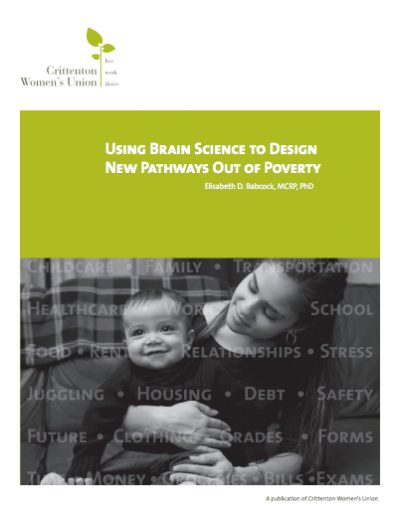Summary
This report, by Crittenton Women’s Union (CWU) is based on evidence of the effects of poverty on the brain and a series of specific brain science-informed social policy and program approaches that target low-income families. It covers best practices for intensive coaching to improve individuals’ decision-making processes and other executive function (EF) skills that are critical to holding a job, pursuing education and maintaining personal finances.
This report applies what we are learning about brain development and the effects of chronic stress on tangible new approaches to combatting entrenched poverty and moving families to economic independence. It includes recommendations for policy and program changes that can be easily adopted to help build the skills adults need to both attain economic stability and create an environment that helps their children to develop their own adaptive skills.






